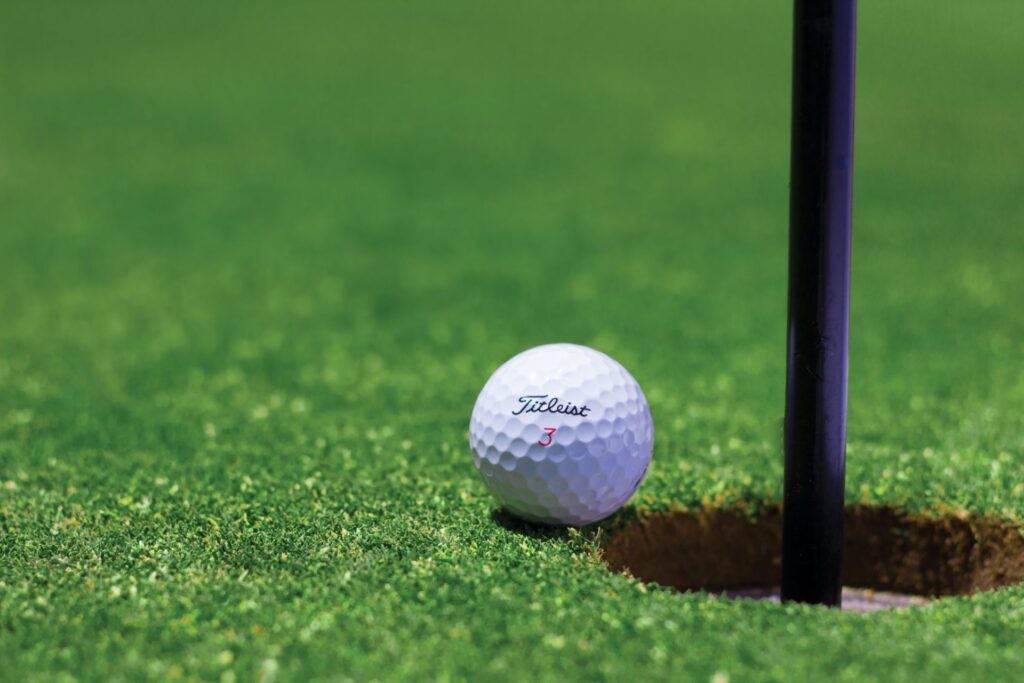Golf has a long past and its own language, so there are a lot of interesting sayings and stories about it. One such term that has captured the imagination of golfers and enthusiasts alike is “birdie.” But what is a birdie in golf, and how does it fit in? In this comprehensive guide, we’ll explore the origins, significance, and the thrill of scoring a birdie in the world of golf.
The Essence of a Birdie in Golf
The Basics of Scoring a Birdie

In the game of golf, the objective is to complete each hole in as few strokes as possible. “Par” is the number of strokes that an expert golfer should take to finish a hole. A birdie occurs when a golfer completes a hole in one stroke less than the designated par for that hole. In simple words, you got a birdie if it took you fewer strokes than the course’s par to get the golf ball into the hole.
Birdie – A Term Rooted in Golf History
The term “birdie” has a fascinating history in the world of golf. It may have started at the Atlantic City Country Club in New Jersey, USA, at the end of the 19th century.
During a round of golf at this old club, a player named Ab Smith hit a great shot that gave him a one-stroke lead on a hole. His golfing buddies were so amazed by what he did that they came up with the phrase “bird of a stroke better” to describe it. Over time, people shortened this phrase to “birdie.”
The Thrill of Scoring a Birdie
The Significance of a Birdie
Scoring a birdie in golf is a significant achievement and a source of pride for golfers of all skill levels. It shows skill, accuracy, and an in-depth knowledge of the game. Birdies are not only a testament to a golfer’s abilities but also add excitement and satisfaction to the round.
The Birdie’s Impact on the Scorecard
A birdie has a positive impact on a golfer’s scorecard. For example, if a golf course has a par of 72 and a player gets a birdie on a par-4 hole, their score for that hole is 3, which is one stroke under par. Many players try to get as many birdies as they can during a round to lower their score.
Tips and Strategies for Scoring Birdies
How to Score Birdies
Scoring birdies requires a combination of skill, strategy, and mental focus. Here are some tips and strategies to increase your chances of scoring birdies:
- Precise Approach Shots: Accurate approach shots that land close to the hole set up birdie opportunities with shorter putts.
- Putting Skill: Developing strong putting skills is essential, as birdies often rely on sinking putts from a variety of distances.
- Course Management: Knowing the golf course’s dangers and subtleties can help you plan your shots and take advantage of chances to make a birdie.
- Confidence and Focus: Staying mentally focused, confident, and maintaining a positive mindset can make a significant difference in scoring birdies.
Conclusion
In golf, a birdie is more than just a word—it’s a sign of success, accuracy, and the pure joy of the game. With its origins rooted in golf history, scoring a birdie is a goal that every golfer aspires to achieve.
As you embark on your golfing journey, remember that birdies are not the domain of professional golfers. All levels of golfers can get them if they have the right mix of skill, planning, and knowledge of the sport’s long history. So, the next time you go golfing, keep an eye out for that rare birdie. It might just become your new best friend in golf.
